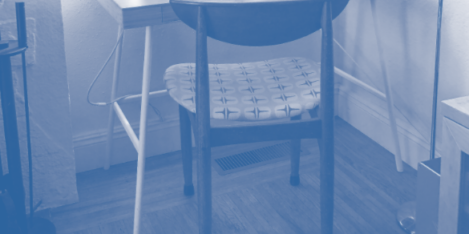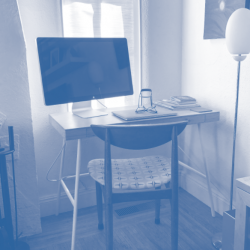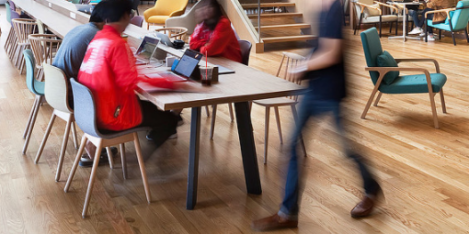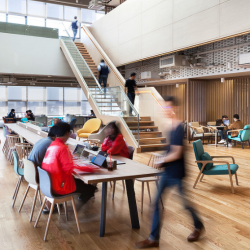To provide the best experiences, we use technologies like cookies to store and/or access device information. Consenting to these technologies will allow us to process data such as browsing behaviour or unique IDs on this site. Not consenting or withdrawing consent, may adversely affect certain features and functions.
The technical storage or access is strictly necessary for the legitimate purpose of enabling the use of a specific service explicitly requested by the subscriber or user, or for the sole purpose of carrying out the transmission of a communication over an electronic communications network.
The technical storage or access is necessary for the legitimate purpose of storing preferences that are not requested by the subscriber or user.
The technical storage or access that is used exclusively for statistical purposes.
The technical storage or access that is used exclusively for anonymous statistical purposes. Without a subpoena, voluntary compliance on the part of your Internet Service Provider, or additional records from a third party, information stored or retrieved for this purpose alone cannot usually be used to identify you.
The technical storage or access is required to create user profiles to send advertising, or to track the user on a website or across several websites for similar marketing purposes.
 A large number of British companies companies say they plan to install monitoring software of some kind to keep an eye on employees working from home, according to a new survey. Around 20 percent of employers said their firms have either implemented, or plan to implement, online software which monitors their remote workers. More →
A large number of British companies companies say they plan to install monitoring software of some kind to keep an eye on employees working from home, according to a new survey. Around 20 percent of employers said their firms have either implemented, or plan to implement, online software which monitors their remote workers. More →






 The location of a potential employer’s workplace is becoming more important to workers – despite a surge in people working remotely, according to outplacement firm
The location of a potential employer’s workplace is becoming more important to workers – despite a surge in people working remotely, according to outplacement firm 
 In a recent
In a recent 
 A new study on work-life balance claims that the COVID-19 crisis is a crucial factor – but not the only one – behind low levels of wellbeing among employees working from home. A research team including Professor Ilke Inceoglu, Professor of Organisational Behaviour and HR Management at the
A new study on work-life balance claims that the COVID-19 crisis is a crucial factor – but not the only one – behind low levels of wellbeing among employees working from home. A research team including Professor Ilke Inceoglu, Professor of Organisational Behaviour and HR Management at the 
 A new paper from the
A new paper from the 
 The construction of new offices in central London has declined by half (50 percent) in six months as developers and occupiers shift their focus to refurbishment, according to Deloitte Real Estate’s latest
The construction of new offices in central London has declined by half (50 percent) in six months as developers and occupiers shift their focus to refurbishment, according to Deloitte Real Estate’s latest 
 Staff need on average three days a week (2.91) in the office to achieve maximum productivity, according to a new study by
Staff need on average three days a week (2.91) in the office to achieve maximum productivity, according to a new study by 
 Companies are facing complex performance challenges as the COVID-19 resurgence heightens the need to reinvigorate employee engagement.
Companies are facing complex performance challenges as the COVID-19 resurgence heightens the need to reinvigorate employee engagement. 
 It has now been more than eight months since the government first advised people to work from home if possible, due to COVID-19. The shift to remote working happened suddenly in March and quickly became part of everyday life; in April 2020 alone,
It has now been more than eight months since the government first advised people to work from home if possible, due to COVID-19. The shift to remote working happened suddenly in March and quickly became part of everyday life; in April 2020 alone, 
 A survey issued by architecture, design, and planning firm
A survey issued by architecture, design, and planning firm 
 Men, younger people, and those with conservative political views are less likely to comply with Covid-19 measures such as social distancing, claims new research from
Men, younger people, and those with conservative political views are less likely to comply with Covid-19 measures such as social distancing, claims new research from 









November 23, 2020
The crisis is making us more authentically human at work
by Jill Dark • Comment, Flexible working, Wellbeing, Workplace design